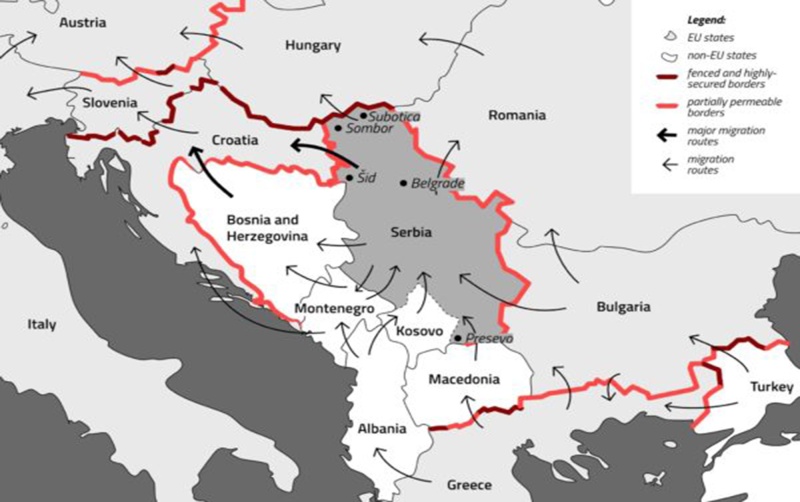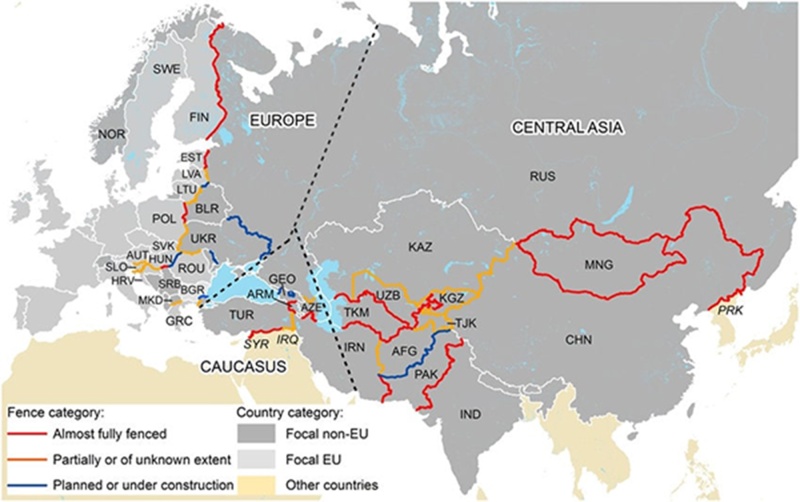The Game - Preface (2016-ongoing)
The Game is part of an on-going multimedia project that explores specific aspects of migrants’ daily life on Eastern European borders from a visual ethnographic perspective. The goal is to explore life in refugee and reception centers, squats, and in the 'jungle' (the woods), by showing the daily practices used by migrants to survive extreme physical and psychological conditions. At the same time, the work investigates the systems of surveillance used by authorities – such as technical equipment, training of volunteer citizen groups joining the police in patrolling the borders – and their effects on the migrants' bodies and psyches.
Migrants refer to their dangerous trip across the so-called Balkan Route as 'the game'. Independently of their origins and native tongues, all migrants use this English expression. They all attempt to cross the Balkan borders, walking or hidden in trains and trucks, even fifteen or twenty times in a year, taking risky, multiple chances, like in a game. More often than not, the police takes them back to their departure point, not rarely after having physically and psychologically abused them. In most cases, guards beat them, push them to walk barefoot in the snow, send dogs to rip their bodies apart, destroy their mobile phones, and seize their money and the few items they carry. Abuses are widely documented by the international NGOs that every day provide migrants with medical support.
Although the Balkan Route has been declared officially closed by Frontex and the EU authorities, and therefore the mass media have covered it increasingly less, thousands of migrants are still using it every day to reach the EU countries. They mainly come from Afghanistan, Pakistan, Iraq, and North Africa, through Turkey and Greece. Some come from countries as far away as Cuba and China. After crossing Bulgaria or Macedonia, they all remain blocked in Serbia for an indefinite time. Their wish is to cross Hungary or Croatia and then continue their journey West, but the frontiers to both countries are massively militarized, making the passage particularly arduous. This pushes migrants to live in a physical and psychological limbo. The border becomes their home while they wait to cross states before reaching their destination – a wait that may last even two years or more.
Migrants refer to their dangerous trip across the so-called Balkan Route as 'the game'. Independently of their origins and native tongues, all migrants use this English expression. They all attempt to cross the Balkan borders, walking or hidden in trains and trucks, even fifteen or twenty times in a year, taking risky, multiple chances, like in a game. More often than not, the police takes them back to their departure point, not rarely after having physically and psychologically abused them. In most cases, guards beat them, push them to walk barefoot in the snow, send dogs to rip their bodies apart, destroy their mobile phones, and seize their money and the few items they carry. Abuses are widely documented by the international NGOs that every day provide migrants with medical support.
Although the Balkan Route has been declared officially closed by Frontex and the EU authorities, and therefore the mass media have covered it increasingly less, thousands of migrants are still using it every day to reach the EU countries. They mainly come from Afghanistan, Pakistan, Iraq, and North Africa, through Turkey and Greece. Some come from countries as far away as Cuba and China. After crossing Bulgaria or Macedonia, they all remain blocked in Serbia for an indefinite time. Their wish is to cross Hungary or Croatia and then continue their journey West, but the frontiers to both countries are massively militarized, making the passage particularly arduous. This pushes migrants to live in a physical and psychological limbo. The border becomes their home while they wait to cross states before reaching their destination – a wait that may last even two years or more.





